第56章
I take the proportion of this state, Pennsylvania, to be an eighth part of the thirteen United States; the quota then for us to raise will be two hundred and fifty thousand pounds sterling; two hundred thousand of which will be our share for the support and pay of the army, and continental expenses at home and abroad, and fifty thousand pounds for the support of the state government.
In order to gain an idea of the proportion in which the raising such a sum will fall, I make the following calculation:
Pennsylvania contains three hundred and seventy-five thousand inhabitants, men, women and children; which is likewise an eighth of the number of inhabitants of the whole United States: therefore, two hundred and fifty thousand pounds sterling to be raised among three hundred and seventy-five thousand persons, is, on an average, thirteen shillings and four pence per head, per annum, or something more than one shilling sterling per month.And our proportion of three quarters of a million for the government of the country, in time of peace, will be ninety-three thousand seven hundred and fifty pounds sterling; fifty thousand of which will be for the government expenses of the state, and forty-three thousand seven hundred and fifty pounds for continental expenses at home and abroad.
The peace establishment then will, on an average, be five shillings sterling per head.Whereas, was England now to stop, and the war cease, her peace establishment would continue the same as it is now, viz.forty shillings per head; therefore was our taxes necessary for carrying on the war, as much per head as hers now is, and the difference to be only whether we should, at the end of the war, pay at the rate of five shillings per head, or forty shillings per head, the case needs no thinking of.But as we can securely defend and keep the country for one third less than what our burden would be if it was conquered, and support the governments afterwards for one eighth of what Britain would levy on us, and could I find a miser whose heart never felt the emotion of a spark of principle, even that man, uninfluenced by every love but the love of money, and capable of no attachment but to his interest, would and must, from the frugality which governs him, contribute to the defence of the country, or he ceases to be a miser and becomes an idiot.But when we take in with it every thing that can ornament mankind; when the line of our interest becomes the line of our happiness; when all that can cheer and animate the heart, when a sense of honor, fame, character, at home and abroad, are interwoven not only with the security but the increase of property, there exists not a man in America, unless he be an hired emissary, who does not see that his good is connected with keeping up a sufficient defence.
I do not imagine that an instance can be produced in the world, of a country putting herself to such an amazing charge to conquer and enslave another, as Britain has done.The sum is too great for her to think of with any tolerable degree of temper; and when we consider the burden she sustains, as well as the disposition she has shown, it would be the height of folly in us to suppose that she would not reimburse herself by the most rapid means, had she America once more within her power.With such an oppression of expense, what would an empty conquest be to her! What relief under such circumstances could she derive from a victory without a prize? It was money, it was revenue she first went to war for, and nothing but that would satisfy her.It is not the nature of avarice to be satisfied with any thing else.Every passion that acts upon mankind has a peculiar mode of operation.Many of them are temporary and fluctuating; they admit of cessation and variety.But avarice is a fixed, uniform passion.It neither abates of its vigor nor changes its object; and the reason why it does not, is founded in the nature of things, for wealth has not a rival where avarice is a ruling passion.One beauty may excel another, and extinguish from the mind of man the pictured remembrance of a former one: but wealth is the phoenix of avarice, and therefore it cannot seek a new object, because there is not another in the world.
I now pass on to show the value of the present taxes, and compare them with the annual expense; but this I shall preface with a few explanatory remarks.
There are two distinct things which make the payment of taxes difficult; the one is the large and real value of the sum to be paid, and the other is the scarcity of the thing in which the payment is to be made; and although these appear to be one and the same, they are in several instances riot only different, but the difficulty springs from different causes.
Suppose a tax to be laid equal to one half of what a man's yearly income is, such a tax could not be paid, because the property could not be spared; and on the other hand, suppose a very trifling tax was laid, to be collected in pearls, such a tax likewise could not be paid, because they could not be had.Now any person may see that these are distinct cases, and the latter of them is a representation of our own.
That the difficulty cannot proceed from the former, that is, from the real value or weight of the tax, is evident at the first view to any person who will consider it.